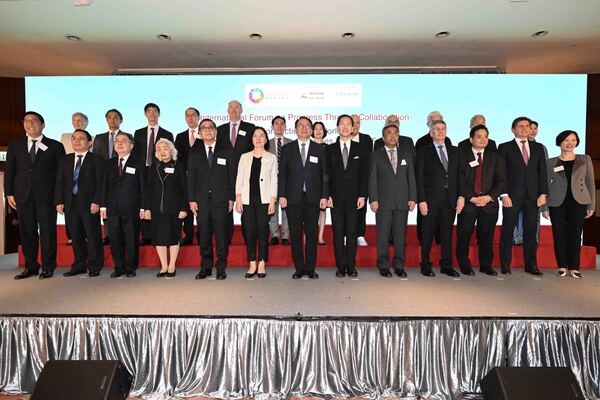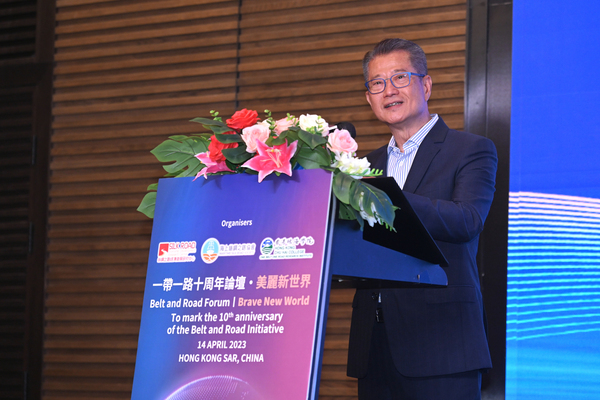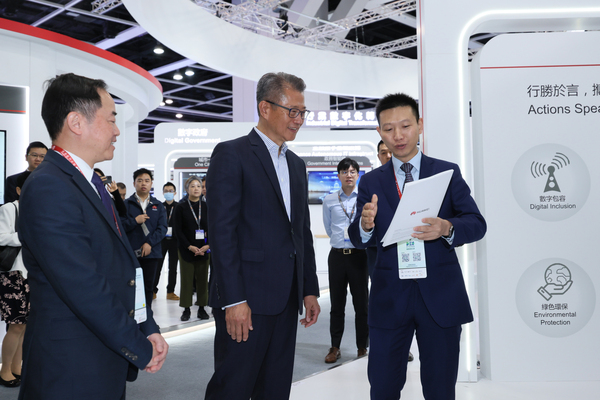
Under the principle of “one country, two systems” guaranteed by the Basic Law, Hong Kong, as the only common law jurisdiction in China, has the unique advantage of enjoying strong support from the motherland and being closely connected to the world, acting as a super-connector for Mainland capital to “go global” and for channelling foreign investments into the Mainland. To maximise the advantages of the common law system that Hong Kong takes pride in, and leverage its strengths to meet the country’s needs, the Department of Justice has been actively developing legal mechanisms for mutual legal assistance in civil and commercial matters with the Mainland, with a view to building bridges for collaboration between the “two systems” and providing greater convenience and stronger legal protection for cross-boundary civil and commercial activities.
After establishing the relevant mechanisms, we have not stopped in our tracks. We have been actively participating in and promoting professional exchanges between the Mainland and the Hong Kong legal sectors, so that we will remain “down-to-earth” and have a practical grasp of the implementation of the relevant mechanisms in both places, as well as the views and needs of the industry and other stakeholders.
Our colleague from the Legal Enhancement & Development Office earlier participated in a roundtable meeting co-organised by the Law Society of Hong Kong and the Guangdong Lawyers Association, under the theme of “Experience Sharing on the Implementation of Mutual Legal Assistance between the Mainland and Hong Kong on Cross-boundary Dispute Resolution”. Together with around 70 outstanding young lawyers from both Guangdong and Hong Kong, they conducted in-depth discussions and shared experiences on matters relating to the various mutual legal assistance arrangements between the Mainland and Hong Kong on civil and commercial matters, including the issues relating to the implementation of those arrangements in Hong Kong and the Mainland.
I am very pleased that the Law Society of Hong Kong and the Guangdong Lawyers Association have provided a valuable platform for the exchange of views on the actual operation of the relevant arrangements from the users’ perspective as well as on the room for further enhancement. For example, Hong Kong lawyers shared their experience on the interpretation of “choice of court agreement” by the Hong Kong court for the purpose of the Mainland Judgments (Reciprocal Enforcement) Ordinance. Mainland lawyers shared their experience on the service of Hong Kong legal documents in the Mainland and suggested to explore the extension of the scope of mutual legal assistance with the Mainland to pre-litigation preservation or interim measures. We place great importance on these constructive comments and will carefully study them and take appropriate follow-up action.
With the strong support of the central government, Hong Kong and the Mainland have so far concluded a total of nine arrangements on mutual legal assistance in civil and commercial matters, covering procedural assistance, arbitration matters, and mutual recognition and enforcement of judgments relating to matrimonial and family cases, bankruptcy or winding-up proceedings and other civil and commercial matters. This highly targeted yet comprehensive mutual legal assistance regime is one of the key contributing factors to Hong Kong’s unique competitiveness in legal and dispute resolution services, giving Hong Kong an advantage that is unavailable to other jurisdictions. The department will spare no efforts in further consolidating and enhancing this edge.
In terms of future work, we will strive to bring into operation as soon as possible the Mainland Judgments in Civil & Commercial Matters (Reciprocal Enforcement) Ordinance, which was passed last year and will provide a more comprehensive regime for the mutual recognition and enforcement of civil and commercial judgments between the two places. Meanwhile, we will continue to maintain close communication with the legal industry and other stakeholders, listen attentively to their requests and suggestions, promote and optimise the operation of the relevant arrangements, so as to ensure we are responding proactively to people’s needs, stimulating the development of legal and dispute resolution services, facilitating the interface between the legal systems of the Mainland and Hong Kong and enhancing the rule of law.
Secretary for Justice Paul Lam wrote this article and posted it on his blog on April 19.



